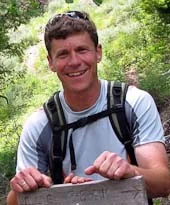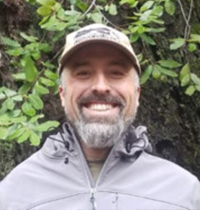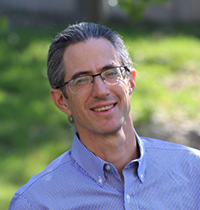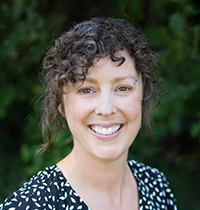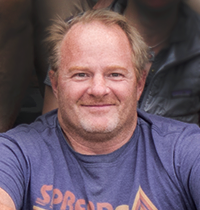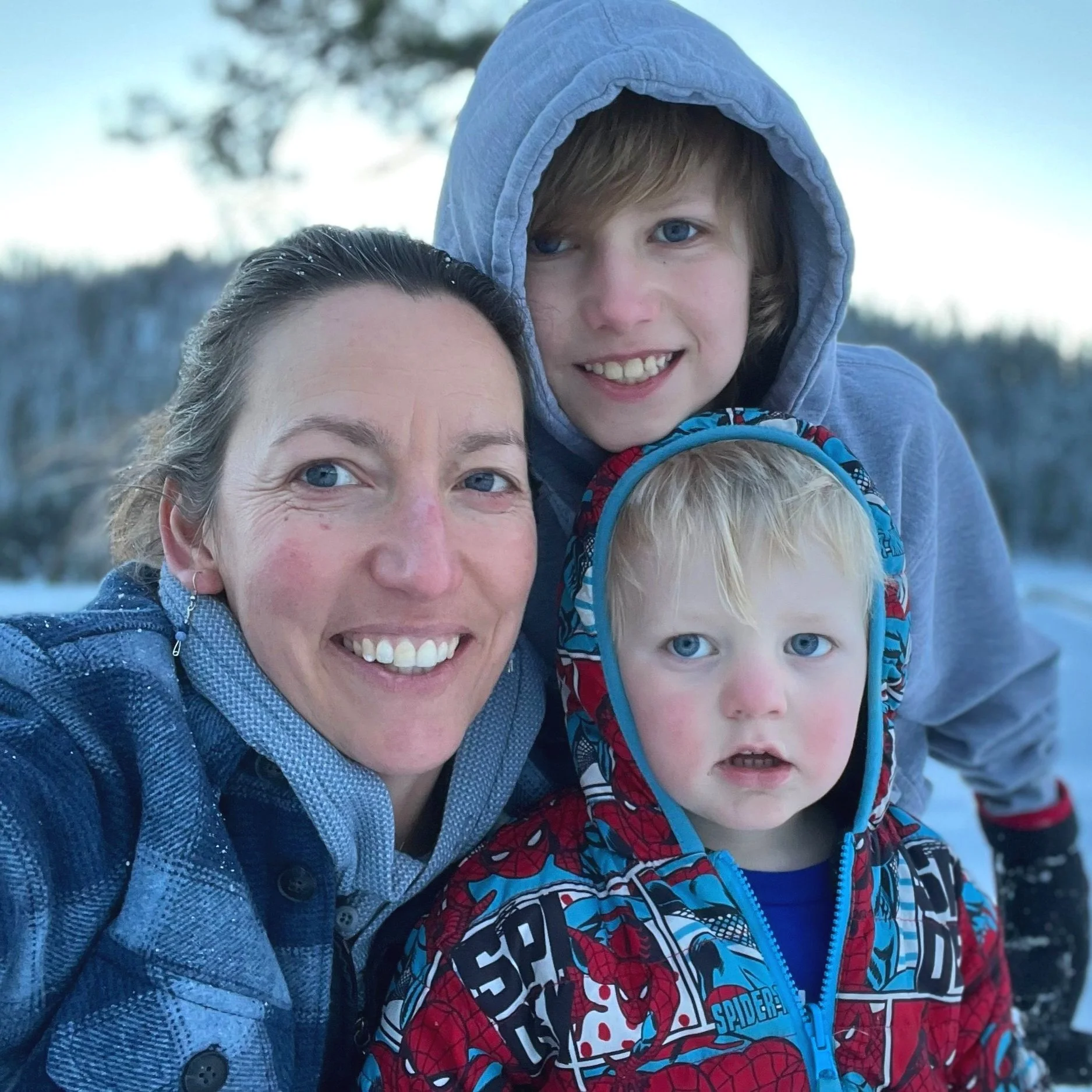RVCC is supported by a Leadership Team comprised of long-term Coalition members invested in our success. The Leadership Team advances the mission of the Coalition through strategic planning and decision making. Leadership Team members offer a wide range of geographical and issue area expertise, forming a diverse group that is representative of the Coalition.
nils christoffersen, executive director, wallowa resources
Nils is the Executive Director of Wallowa Resources, based in Enterprise, OR. Nils has diverse experience in place-based natural resource management from working around the world, including ranching in Australia, farming in Israel, fishing and forestry in Norway, and forestry and wildlife in southern Africa. He is passionate about working landscapes and the role of rural communities in their stewardship. He is a graduate of both Williams College (B.A. Economics) and Oxford University (M.S. Forestry), and has served on many local and national boards - including the National Commission on Science for Sustainable Forestry. He currently serves on the Oregon Board of Forestry, World Forest Center's Board of Directors, and Enterprise School District Board.
about wallowa resources
Wallowa Resources, a non-profit founded in 1996, develops, promotes, and implements innovative solutions to help the people of Wallowa County, Oregon and the Intermountain West to sustain and improve their communities and their lands. This work includes education and research, as well as land stewardship and business development. As of 2015, Wallowa Resources is the fiscal sponsor of the Rural Voices for Conservation Coalition.
Heidi Huber-Stearns, director, ecosystem workforce program
Heidi Huber-Stearns is the director of the Ecosystem Workforce Program, a bi-institutional partnership between the Institute for a Sustainable Environment at University of Oregon and the College of Forestry at Oregon State University. She is also an associate research professor and director of the Institute for a Sustainable Environment at the University of Oregon. Her research focuses on environmental governance and organizations collectively working to address forest, watershed and wildfire risks. Heidi grew up on a cattle ranch in western Oregon and holds a PhD and MS from Colorado State University.
about the ecosystem workforce program
The EWP, based at the University of Oregon, was founded in 1994 to support the development of a high-skill, high-wage ecosystem management industry in the Pacific Northwest. Since that time, EWP has fostered forest-based sustainable rural development in forest communities by developing restoration workforce training curriculum and supporting local quality jobs programs in forest communities. They have supported community-based forestry programs through applied research projects, such as understanding the distribution of benefits from federal forest management and the working conditions of forest workers. They also support community-based forestry by working collaboratively with forest communities to educate national policy makers about impacts of forest policy on forest communities and landscapes.
nick goulette, executive director, watershed research and training center
Nick Goulette is the Executive Director of The Watershed Research and Training Center, located in Hayfork, CA. Trained as a forester, he has worked in a wide range of capacities over the past 18 years, taking over leadership of the organization after 5 years serving first as Stewardship Coordinator and then Deputy Director. He oversees programs focused on forestry, fire and fuels, watershed and fisheries, youth engagement, enterprise development, policy and research, operating at the local, regional and national level. Locally, he has planned and managed a wide range of forest management, prescribed fire, and community wildfire protection projects. Regionally, he helped to establish the CA Forest Biomass Working Group, the CA Statewide Wood Energy Team, and is the Chair of the Northern CA Prescribed Fire Council. He also serves as the national project director for the Fire Adapted Communities Learning Network. Nick earned a B.S. in Forestry from the University of Vermont (2004) with a concentration in Community-based Forestry.
about the watershed research and training center
The Watershed Research and Training Center (WRTC) is a community-based non-profit organization in far northern California. The WRTC’s mission is to promote a healthy forest and a healthy community through research, training, education, and economic development. Since 1993, the WRTC has been working to revitalize the economy of Hayfork, CA and rural communities across the west by creating local restoration jobs, aligned businesses, and a culture of land stewardship.
zander evans, EXECUTIVE director, the forest stewards guild
Dr. Zander Evans, the Executive Director at the Forest Stewards Guild, directs and conducts research to supports on-the-ground implementation of ecological forestry. His current research includes the effectiveness of fuel treatments and sustainability of forest bioenergy. He received his PhD from the Yale School of Forestry and Environmental Studies after working as a cartographer and spatial analyst with the US Geological Survey.
about the forest stewards guild
The Forest Stewards Guild practices and promotes ecologically, economically, and socially responsible forestry as a means of sustaining the integrity of forest ecosystems and the human communities dependent upon them. Our members are foresters, conservationists, resource managers, scientists, students, forestland owners, policy makers, and land stewards working in forests throughout the United States and Canada.
Chelsea Pennick McIver, Research Analyst, Policy Analysis Group
Chelsea Pennick McIver is a research analyst and PhD student with the Policy Analysis Group at the University of Idaho. She is also the Society of American Forester’s Mollie Beattie Fellow in Forest Policy. Chelsea holds a Master’s degree in Forestry and a Bachelor’s degree in Rural Sociology, both from the University of Montana. Chelsea has over 10 years of experience working in the messy worlds of public lands management, collaboration, and rural community development as a researcher, collaborative member and grantmaker. She has also visited nearly every wood-processing mill in California, Montana and Wyoming. As a Mollie Beattie fellow, she is leading an investigation into the impact of collaboration on the pace and scale of restoration on federal lands. Other current research pursuits include county-level policymaking in the context of county payments (PILT, SRS, etc), an analysis of state funding for wildfire suppression and a 10-year report on the local economic impact of the CFLRP in western Montana. Chelsea currently lives in Missoula, MT.
about Policy Analysis Group
The Policy Analysis Group (PAG), located in the University of Idaho’s College of Natural Resources, was created in 1989 by the Idaho Legislature. The PAG provides timely, scientific and objective data and analysis on resource and land use questions of general interest to the people of Idaho. Under the leadership of Dennis R. Becker, the PAG has grown to address issues of regional and national significance through leadership on agency initiatives such as Shared Stewardship, Outcome-based Grazing, and Good Neighbor Authority and analyses addressing questions related to county payments, the impact of collaboration on the pace and scale of restoration and state funding for wildfire suppression. The PAG also provides expertise in economic impact modeling and contribution studies, land use and resource allocation modelling and carbon accounting.
bob christensen, regional catalyst for natural resources, sustainable southeast partnership
Bob is the Regional Catalyst for Natural Resources with the Sustainable Southeast Partnership (SSP) in Southeast Alaska. Bob works with the SSP community catalysts on natural resource assessments, planning, project prioritization, workforce development, project implementation, business development, subsistence enhancement, habitat restoration, and tourism enhancement among others. Bob also focused on enhancing the socio-political environment for communities to be successful stewards of the lands and waters that surround them, working with a variety of people in conservation organizations, business groups, tribal organizations, chambers of commerce, and city, state and federal governments. Bob lives on Lemesurier Island, near Glacier Bay, Alaska and has been working as an environmental consultant in Southeast Alaska for nearly 15 years.
about the sustainable southeast partnership
The Sustainable Southeast Partnership (SSP) is a diverse network of organizations working together to meet the challenge of sustainable community development in Southeast Alaska. SSP’s mission is to empower rural Alaskan communities to reach cultural, ecological and economic prosperity. The partnership includes international, regional and community-based organizations who collectively support locally-identified priorities. The Sustainable Southeast Partnership includes representatives from tribal governments and community organizations in the rural villages of Kake, Kasaan, Hydaburg, Hoonah, and Yakutat.
NATE OWENS, POLICY DIRECTOR, HEART OF THE ROCKIES INITIATIVE
Nate joined the Heart of the Rockies Initiative as their Policy Director in 2022. Having spent 10 years working for the Utah Division of Wildlife Resources as an Aquatics Program Manager focused on aquatic invasive species and boating access, he transitioned to the policy world where he now focuses on legislation and policy around carnivore conflict reduction, rural communities, and private land conservation. He is based out of Salt Lake City, Utah, where he spends long hours running up and down mountains.
ABOUT HEART OF THE ROCKIES INITIATIVE
Heart of the Rockies Initiative is a partnership of 29 land trusts working to increase the pace of voluntary conservation of the most biologically, agriculturally and culturally important private lands in the Northern Rocky Mountains. The Initiative’s four programs – the High Divide Collaborative, Rural Communities, Carnivore Conflict Reduction, and Land Trust Partnership – bring partners together to keep habitat connected for people and wildlife.
Bre OWENS, Director of Western Programs,
National Grazing lands coalition - Western Grazing Network
Bre lives in Los Molinos, CA where she runs a small cattle operation. Bre grew up in Northern CA on a cow-calf ranch, attended Chico State and Colorado State University, Fort Collins, focusing her studies on rangeland ecology and livestock production. Beyond CA, she has worked on cattle ranches in OR, NV, WY and HI. She is motivated by a love for working landscapes – for the people, land and livestock that are a part of them. She believes that conservation at its best is Ag at its best. Bre’s role at NatGLC is designed to bring western grazers' needs and solutions into NatGLC’s programs, policy and communications efforts, while sharing resources and facilitating partnerships across the West. She maintains a comprehensive understanding of current challenges and emerging opportunities relevant to grazing lands stewardship through these interactions and by running her own beef cattle operation. She serves on the Board of the CA Rangeland Conservation Coalition and Cal-Pac Section of Society for Range Management, and is a CA Certified Rangeland Manager (CRM #97).
ABOUT Western Grazing Network
The Western Grazing Network is advancing a new model of natural resource stewardship (management + conservation) and market-derived financing that values landscape functionality for both agriculture commodity production and a full suite of ecosystem services, including GHG benefits. This is being accomplished through the development of regional Hubs; implementation or enhancement of process-based livestock grazing systems; measurement, monitoring, reporting and verification of climate-smart commodity production and associated ecosystem benefits, with a focus on GHG benefits; and the marketing and promotion of livestock and associated ecosystem services originating from the land base of partnering ranches.
Top photo credit: Emily Jane Davis



